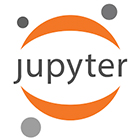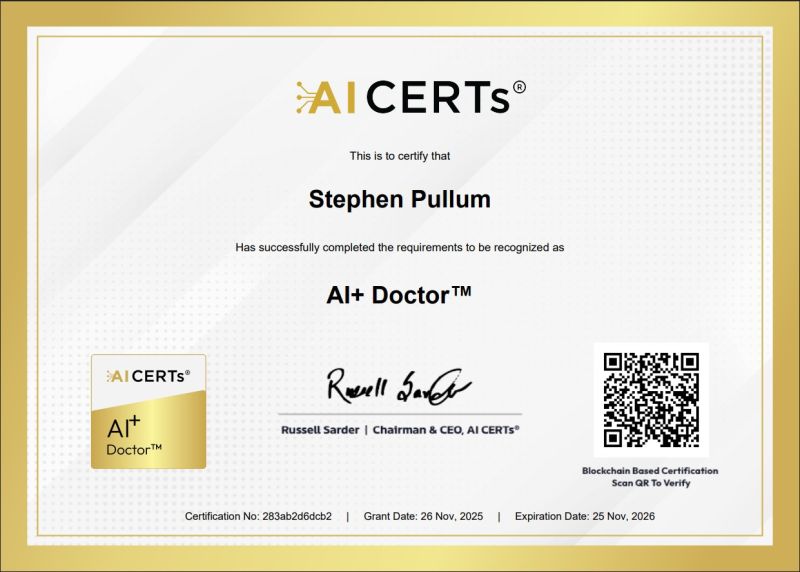Home » All Certifications » Healthcare » AI+ Doctor™
$195.00
| Modules | Percentage |
|---|---|
| What is AI for Doctors? | 9 |
| AI in Diagnostics & Imaging | 13 |
| Introduction to Fundamental Data Analysis | 13 |
| Predictive Analytics & Clinical Decision Support – Empowering Proactive Patient Care | 13 |
| NLP and Generative AI in Clinical Use | 13 |
| Ethical and Equitable AI Use | 13 |
| Evaluating AI Tools in Practice | 13 |
| Implementing AI in Clinical Settings | 13 |









Showcase your expertise to potential employers and professional connections.
Your certificate is secured on the blockchain for tamper-proof authenticity and can be downloaded as a high-quality PDF for personal records or professional sharing.
Celebrate your accomplishment with your network on all social platforms.



Advise hospitals and clinics on adopting AI solutions to improve diagnostics, patient care, and operational efficiency.
Oversee the deployment of AI-powered systems in clinical settings to streamline workflows, reduce errors, and enhance care delivery.
Develop and apply AI models to analyze patient data, predict health trends, and support evidence-based treatment decisions.
Drive AI integration in medical practice to enhance patient outcomes and streamline clinical processes.
Lead strategic AI adoption in healthcare to drive innovation, digital transformation, and personalized medicine.
